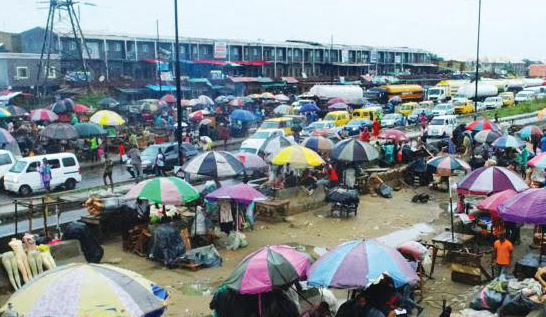The Lagos State Government has taken an unwavering stance on environmental cleanliness, leading to the closure of Oyingbo and Alayabiagba markets in Lagos Mainland due to improper waste disposal and other environmental infractions.
The Lagos Waste Management Authority (LAWMA) officially announced this move on Monday.
The decision to seal off these markets followed numerous warnings from LAWMA to markets across the state, urging them to prioritise cleanliness and adhere to proper environmental hygiene practices. Muyiwa Gbadegesin, the Managing Director of LAWMA, emphasised that this measure was taken in response to the markets' repeated non-compliance with the state’s Environmental Protection Laws.
Despite LAWMA's continuous efforts to enhance the environment, some individuals and markets have persistently flouted regulations, undermining these initiatives. Gbadegesin stressed that legal actions would be taken against such individuals, dealers, and markets as necessary.
Gbadegesin also warned other markets about irresponsible waste disposal and environmental violations, cautioning that they would face similar consequences if they failed to rectify their practices. He clarified that the executive members of such markets would also be held accountable for their actions.
He emphasised, "We must hold businesses accountable for their environmental responsibilities. This enforcement action by LAWMA aims to promote a culture of compliance and create a more livable city for all residents. I also want to emphasise that once a market is closed, it would meet all requirements before being reopened for business."
A list of markets at risk of imminent closure was provided, including Tejuosho Model Market Phase 1, Ladipo Market in Mushin, Anjorin Market, Irewolede Plank Market, Idi-Araba Obele Market, Oni Baba Market, Oba Morufu International Market (formerly known as Ejigbo Market), Ijora 7UP Market, Okeafa Plank Market, Ifelodun Fruit Market in Amukoko, and others.
In a related development, Gbadegesin unveiled plans to dismantle illegal market structures that have sprung up across the metropolis. These structures, including the Fiki Marina fruit market, Victoria Island market by Abraham Adesanya roundabout in Ajah, Jakande market by Jakande bus stop, Traders Opposite Oniru Market in Oniru, and New Road Market by New Road Bus Stop, have posed safety hazards and hindered traffic flow and urban planning efforts.
Gbadegesin emphasised that "removing illegal market structures is pivotal for urban planning and development. It allows for proper zoning and allocation of spaces, ensuring a more organised and aesthetically pleasing cityscape."
He further revealed that LAWMA was actively seeking collaboration with market associations, local authorities, and relevant stakeholders to ensure the success of these initiatives. The agency would guide and support markets in establishing efficient waste management systems that comply with established regulations.
Gbadegesin urged markets in the state to support LAWMA's efforts by following stipulated waste management guidelines. With the combined efforts of the agency and cooperation from residents, significant improvements in waste management are anticipated, resulting in a cleaner and healthier environment for all.









